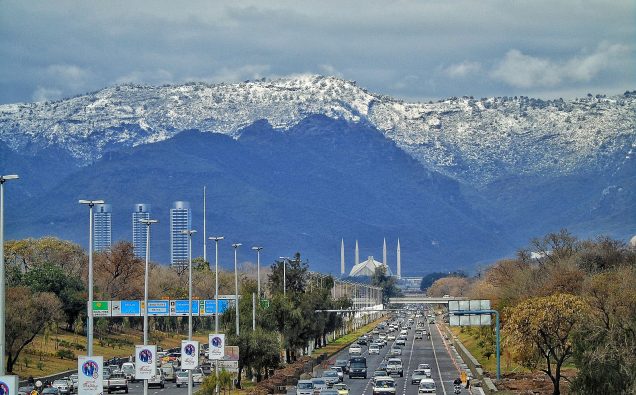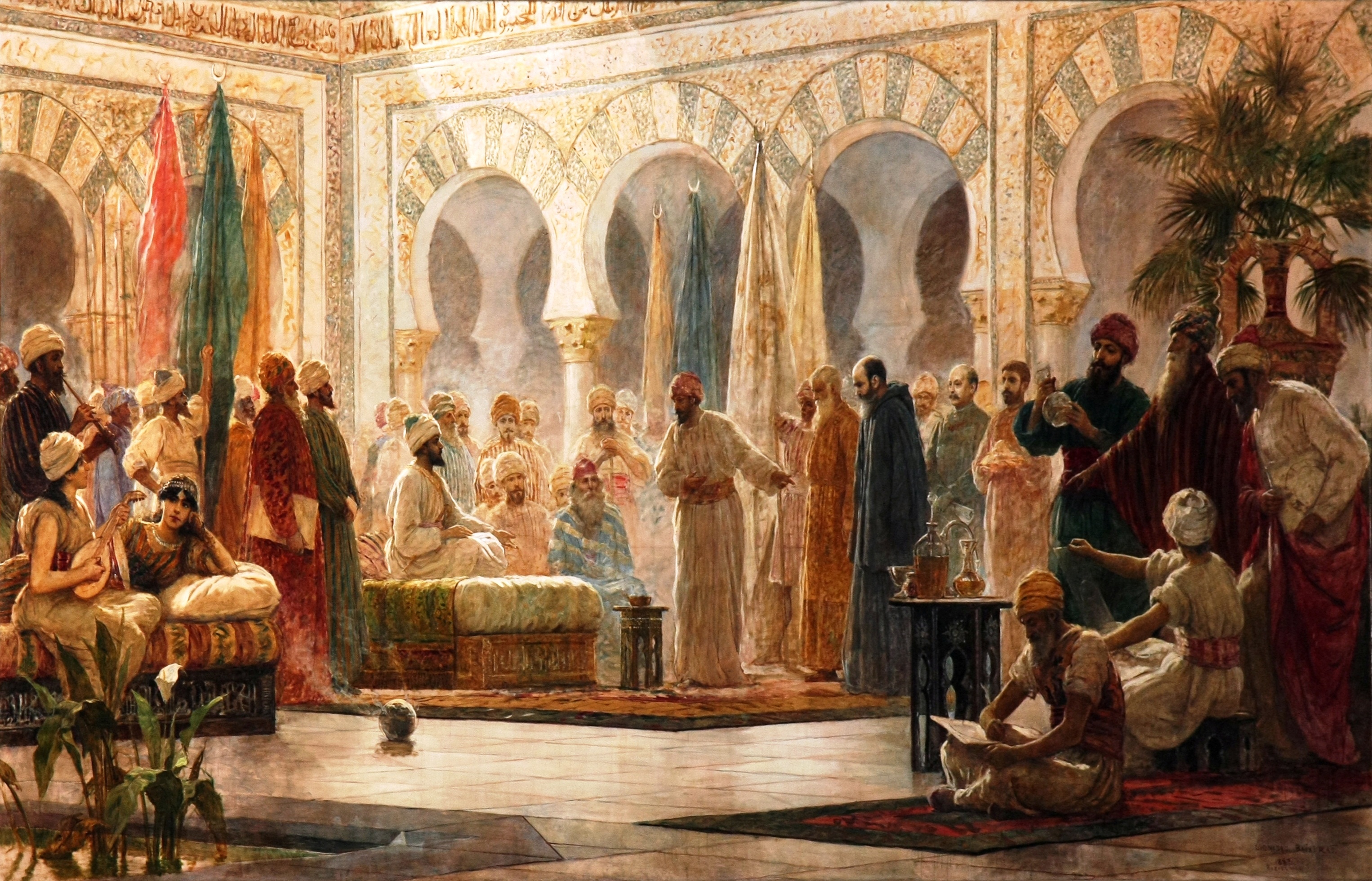
A view of Islamabad with Faisal Mosque, Photo: Fassifarooq/Wikimedia Commons
Last month, while collecting my mail in routine I received an extraordinary surprise – a personal letter from Prime Minister Shahid Khaqan Abbasi.
In February, courtesy of the Pakistan Embassy in Washington, I had sent Prime Minister Abbasi a signed copy of my new book, Journey into Europe: Islam, Immigration, and Identity. I sent it hoping he would receive it and perhaps read it, but as is typical in gifting books to senior leaders, I expected very little if anything in return. Instead, I received a warm, personal note expressing gratitude for the gift.
In the letter dated 8 March 2018, the Prime Minister writes:
My Dear Dr. Ahmed,
Thank you very much for sending a personal copy of your latest book “Journey into Europe: Islam, Immigration, and Identity”. It is indeed an iconic work on a subject of great importance and relevance.
Your insightful discourse on the problems being faced by Muslims in multi-ethnic and multi-cultural societies of Europe will go a long way in creating a better understanding among stakeholders, striving to find long-lasting solutions.
Thank you once again for this thoughtful and illuminating gift. I wish you the very best for your present and future endeavors.
Yours sincerely,
Shahid Khaqan Abbasi
I shared the letter with a number of my contacts and colleagues here in the US and in Pakistan. Most Pakistanis were cynical: some said he was a mere stop-gap appointment, others that he was a no-body. They missed the point.
The most noteworthy response came from my wise friend Wardella Doschek, an American convert to Islam who shared her story in the book, Straight and Sensible: My Journey to the Straight Path of Islam (2015). Wardella recognized straightaway a parallel between Prime Minister Abbasi’s letter and a period of history I explore in Journey into Europe – the Golden Age of Andalusia and the period of la convivencia, or coexistence: “Masha’Allah! This reminds me of what you say in Journey into Europeabout rulers during La Convivencia cherishing a book as a gift.”
While conducting fieldwork for Journey into Europe, I was struck by the importance of ilm, or knowledge, in the Golden Age of Andalusia and the positive impact this legacy continues to have on Andalusians even today.
The divisions around the globe cannot be addressed and bridged without mutual understanding. More leaders must take after the example of PM Abbasi by pursuing knowledge and trying to understand others. If this happens, perhaps the 21st century can be peaceful
One person who shared this sentiment with us was Imma Fernandez, a dynamic woman who served as our tour guide in Cordoba. Imma was enraptured by the Golden Age of Andalusia.

La civilització del califat de Còrdova en temps d’Abd-al-Rahman III. Photo: By Dionisio Baixeras Verdaguer (1862–1943) via Wikimedia Commons
In particular, Imma, waxing lyrically, told us of how the caliphs of the time often valued receiving knowledge over luxury items, contrary to common perceptions of royalty throughout history: “Their first aim was how to acquire more knowledge and wisdom. The best present you could give to a caliph was a book, not material presents or gold or silver.”
Consider the following examples of how knowledge was treasured not only by some of the caliphs of the Golden Age of Andalusia, but by leaders from throughout the Mediterranean region and the Muslim world approximately a millennium ago. As I write in Journey into Europe, under the eighth-century rule of Abdur Rahman in Andalusia, “The main library of Cordoba was said to have 600,000 books and manuscripts at a time when the biggest library in Christian Europe, housed in Switzerland, had some 400. There were seventy libraries in Cordoba alone.” Alfonso X of Castile, who reigned in the thirteenth century, was known for specially protecting the scholars of his kingdom, even exempting them and their books, along with any goods of theirs, from being tolled. Holy Roman Emperor Frederick II, who also reigned in the thirteenth century, himself noted in his interactions with Muslim emperors that they often valued books and knowledge far more than luxury goods. It was this so-called ilm ethos which allowed the notion of convivencia to thrive not only in Andalusia, but also throughout surrounding kingdoms and empires, in this era of history. It is this same ilm ethos which we are seeing reflected today in the Prime Minister’s letter.
Sadly, the tradition of giving and reading books at the highest level seems to have disappeared. As Imma herself reflected in follow-up to her romantic musings about the Golden Age of Andalusia, “Unfortunately, we are far away from that, and I am considered a Dreamer.”
It is worth noting here that Prime Minister Abbasi is one of the few senior leaders who has bothered to reply upon receiving a copy of Journey into Europe. However, just because Prime Minister Abbasi’s sentiments are the exception, not the rule, in today’s world does not mean we should lose hope. In fact, this letter, in harkening back to a time when books were routinely gifted and read at the highest levels, should instead give us all hope for the future.
Imma in her time with us also remarked that Andalusia was defined by the “respect of religious minorities, harmony, and peace. There were no big wars at that time, it was a very peaceful century, the tenth century.” Sadly, the same cannot be said today. In this time of division around the globe, division that requires knowledge to be addressed and bridged, more leaders should take after the example of Prime Minister Abbasi. If more of our senior leaders read, pursue knowledge, and seek understanding of others, perhaps the 21st century too can become a peaceful century. It is not too late for us to learn from the past and consider changing our ways.















